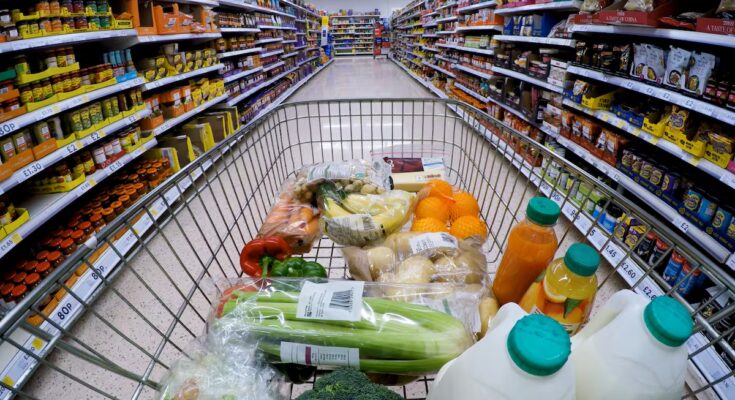The shopping cart and house prices have increased, compromising the daily lives of families. So much so that the cost of living risks becoming a dangerous factor in disaffection among citizens. Economic factors continue to add to this upward trend. Therefore, since last Thursday, all free-range poultry in Spain has been confined. It is the right decision adopted by the Ministry of Agriculture to try to prevent the avian flu epidemic – which has already forced the slaughter of 2.7 million chickens – from spreading to new farms. The epidemic affects the production of eggs and poultry meat, with consequent economic damage for farms, and is already being felt on the prices of these basic products: in the last year eggs, a low-cost protein source, have increased by 22.5%, according to data from the National Institute of Statistics (INE), and the trend is expected to continue in the coming months.
The avian flu epidemic is the latest blow to the unstoppable increase in food prices: this year beef has increased by 13.6%; coffee, 17.6% and fresh fruit, 9.3%. Increases that hit families with fewer resources particularly hard. Only reducing olive oil, sugar or potatoes can alleviate the escalation.
The increase in food prices is a widespread phenomenon in parts of developed countries. The OECD pointed out in a recent report that they had a cumulative increase of 45.8% between 2019 and 2025, well above the other components of the CPI. US President Donald Trump had to eliminate the 15% tariff on numerous fresh products from Ecuador, such as bananas, cocoa or tomatoes, due to its impact on Americans’ pockets.
In any case, food is not the only front that puts pressure on the Spanish family economy. INE data shows that, after the blackout on April 28, the system strengthened its security and this, together with other factors, made the electricity bill more expensive (18.7% in the last 12 months). Additionally, the new waste collection fee increases costs associated with housing and increased the amount of this service by 30.3% in October. The increase in prices is, in short, generalized; which explains why inflation went from 2% in May to 3.1% in October.
The situation is exacerbated in a context of a housing crisis, where families face enormous difficulties in accessing both buying and renting, and with real wages stagnant at best. The INE itself certifies in the survey on the active population that, despite the salary increases in 2023 and 2024 (7% and 5% respectively), purchasing power remains 1.7 points lower than that of 2020. Worse still, the salary evolution shows a generational gap: the average salary of young people up to 24 years of age decreases by around 14 euros per month (to 1,372 euros gross) due to the increase in weight. of part-time work in that group, compared to those over 55, who earned 202 euros more.
These data paint a perfect storm of rising inflation, stagnant real wages and prohibitive housing which explains the hardship of a part of the population, for whom not even having a stable job guarantees a comfortable life. They should also serve as a wake-up call to the political class, whose most urgent mission is to solve citizens’ problems. Not doing so means running the risk of entering a spiral of disaffection that paves the way for the growth of populism.



